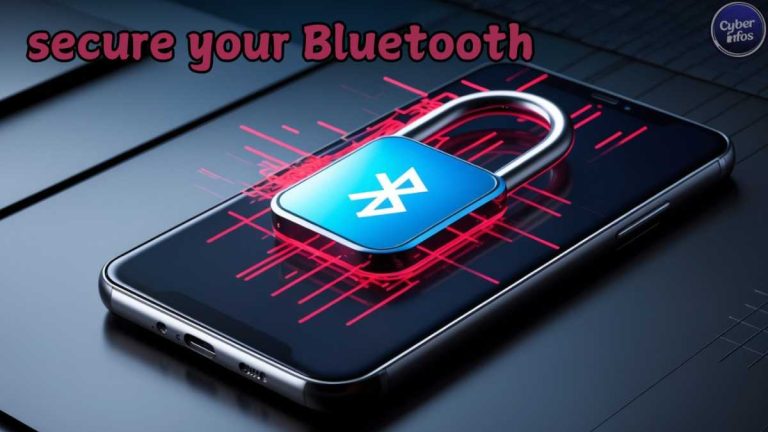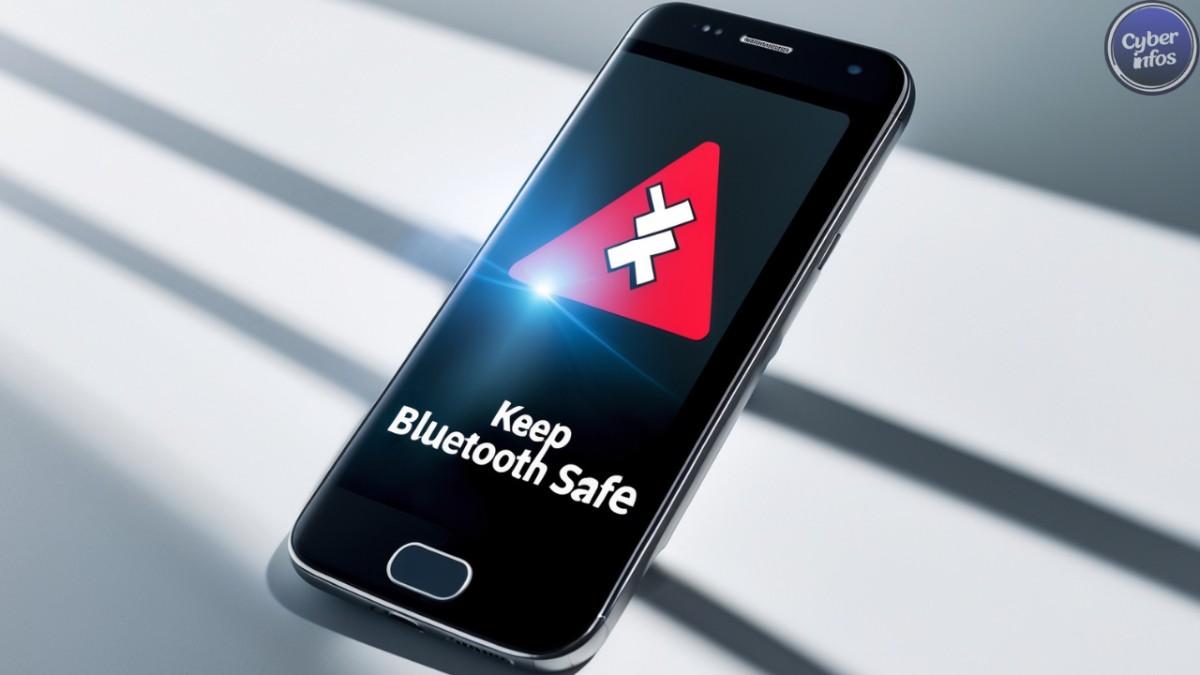People depend on Bluetooth technology daily to connect their various devices without interruption. The convenience of Bluetooth creates substantial security risks since Bluetooth hacking has emerged as a major threat.
Attackers use Bluetooth connection flaws to gain access to confidential information as well as monitor locations and distribute destructive computer viruses.
The security of your mobile device against such threats stands as your primary defense for maintaining personal information safety and digital protection.
This article provides step-by-step instructions to secure your Bluetooth connectivity together with methods to protect your mobile from possible hacking invasions.
What is Bluetooth Hacking?
Bluetooth hacking is a type of cyber attack that uses Bluetooth technology to steal information from your mobile device.
Some methods hackers might use to intercept data, steal information, or control your mobile remotely are ”Bluejacking”, “Bluebugging”, and “Bluesnarfing”.
Popular Bluetooth Hacking Techniques
- Bluejacking – Communicating messages or files over Bluetooth without request.
- Bluesnarfing – The unauthorized access of information from a wireless device.
- Bluebugging – Hacking another mobile device by exploiting security holes.
All these exploits can endanger your privacy, data and even money if unchecked.
Bluetooth hacking can also be used to access and control smart home devices, exposing private and sensitive information about the users.
Risks of Bluetooth Hacking
Before you learn how to protect yourself, it’s important that you understand the risks. Bluetooth Hackers Can:
- Exfiltrate personal data like passwords or banking info.
- Download threatening spyware or other malware.
- Record conversations using your mobile’s microphone.
- Monitor your location without your knowledge.
Now that you know what’s at stake, here’s how to protect your mobile from the threats.
How to Keep Your Mobile Safe from Bluetooth Hacking?
Off Bluetooth when not in use
One of the easiest but most powerful strategies is to turn off Bluetooth when you are not using it. If the connection is switched off, hackers have nothing to exploit on your device.
Use “Non-Discoverable” Mode
As part of good hygiene whenever Bluetooth is on, always switch your phone into non-discoverable mode. This lowers the likelihood that hackers will discover your device. This option is available in the Bluetooth settings of most smartphones.
Pair Device in Secure Environments
Pair with familiar devices in a trusted environment only. Do not accept connection requests from stranger or untrusted devices. Public places invite hacking activity, keep vigilant.
Update Bluetooth Firmware Regularly
Updating is important to close security holes. Your mobile is left exposed to vulnerabilities that hackers can take advantage of, as it has outdated firmware. Allow auto-updates when it’s an option.
Disable Bluetooth While Financially Connected
Set a reminder to switch off Bluetooth while using mobile banking apps or entering sensitive data. This helps to ensure hackers cannot see your transaction details.
With the rise of IoT (Internet of Things) devices, Bluetooth hacking has become a major concern as these devices often have weak security measures in place.
Don’t use Public Free Wi-Fi Connections
Hackers sometimes combine rogue Wi-Fi networks with Bluetooth attacks. When Bluetooth is on, do not attempt to connect to public location free Wi-Fi.
Battery and Data Use Monitoring
Unexplained sudden spikes in battery drain and data use can be signs of unauthorized Bluetooth connections. Be on the lookout for these deviations.
Use an Antivirus or Mobile Security Software
Your mobile needs to have a good antivirus to work with it that detects malware or any misbehavior from these Bluetooth connections.
Audit Paired Devices Regularly
From time to time, browse the list of paired devices in your Bluetooth settings. Unlink devices you don’t know or need anymore.
The most common reason for Bluetooth hacking is to access sensitive information such as credit card details, personal information, and passwords.
Advanced Bluetooth Security Tips
Encrypt Your Data
Make sure to encrypt all Bluetooth communications where possible. Encryption scrambles your data so that it’s more difficult for hackers to intercept and understand.
Use Apps Wisely
Check Bluetooth access for apps. Regularly uninstall questionable or redundant apps as they could potentially expose Bluetooth vulnerabilities.
Secure Bluetooth Device
Devices that come with built-in encryption and robust access controls are more secure. As always, research reputable brands before investing in any Bluetooth-capable devices.
Auto-Disconnect Features
Auto-disconnect on some smartphones has begun to cause device Bluetooth connections to drop when they aren’t in use. Enabling this option could reduce security risk.
Don’t use Bluetooth in High-Risk Areas
High-traffic public areas Bluetooth hackers are active in all over the world like airports, coffee shops, shopping malls, etc. Only use in these locations as much as possible.
Get to Know Notifications
Bluetooth activities are often linked with modern devices, where it notifies you of new activities. Report or deny about suspicious prompts or requests to pair immediately

Why Bluetooth Security Matters?
Bluetooth security is more than your phone, it’s your whole digital ecosystem For example:
If hackers access your smartphone, they can access the smartwatches, earbuds or even smart home devices connected to it.
Cybersecurity breaches can quickly turn the waves, compromising business data, personal accounts, and more.
Making sure your Bluetooth connections are secure will help keep all these connected devices safe.
Most Bluetooth devices have a default PIN of “0000” or “1234”, which makes them vulnerable to hacking as hackers can easily guess or brute force these codes.
Signs Your Mobile Bluetooth may be breached
Be on the lookout for these warning signs that may signal hack attacks:
- Unwanted Bluetooth connections or pairing requests.
- Bluetooth being on causes unusual battery drain.
- Weird apps or files that you don’t remember downloading on your phone.
- An increase in data usage, with no known reason.
- If you suspect that your mobile is based upon have been compromised.
Immediately, disconnect all Bluetooth devices, update your software, and throw your computer a deep malware scan.
Final thoughts
The process of protecting your mobile against Bluetooth hacking can be easily manageable.
The security of your mobile devices depends largely on three key behaviors which include disabling Bluetooth for inactive periods and maintaining software updates and rejecting all pairing requests from unknown devices.
Maintain continuous security vigilance regarding your mobile devices while learning about security threats that may exist.
Using these secure practices protects your mobile phone as well as your digital privacy and security.
Be watchful because you will defend yourself against hacking threats.


